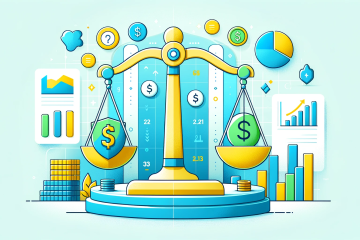Finanse
Odpowiedzialne Finanse: Jak Unikać Pułapki Długu i Zadłużenia
Finanse osobiste to nic innego jak nurtujący każdego obszar, w którym zdolność zarządzania pieniędzmi staje się kluczowa dla osobistego sukcesu i spokoju ducha. W Polsce, jak i na całym świecie, niewłaściwe decyzje finansowe czy brak planu oszczędzania mogą prowadzić do pułapki zadłużenia, której konsekwencje odczuwają długie lata. W tej obszernej publikacji omówimy szczegółowo, jak zadbać o swoje finanse, unikać długu i budować stabilną przyszłość finansową.
Wstęp: Finanse a Życie Codzienne
Od czasów naszych przodków pieniądz …




